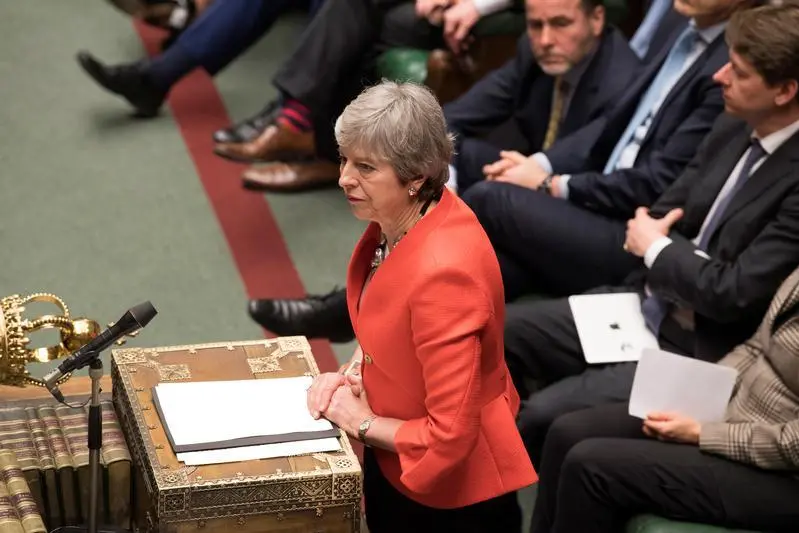PHOTO
LONDON - Britain is stretching out its journey to an unknown final destination. Parliament rejected Prime Minister Theresa May’s blueprint for leaving the European Union for a second time on Tuesday. With only 17 days to go until the official departure date, buying more time is the probable next step, and the least painful way forward.
The 149-vote majority against May’s deal was not quite as devastating as the 230-vote margin of defeat she suffered in January. Nevertheless, it’s a humiliation. The prime minister has spent the past two months trying to extract concessions from the EU to assuage the deal’s many critics. These efforts were largely futile.
May could try to resurrect her proposal one last time in the few weeks that remain. In the meantime, lawmakers face two immediate choices. The first is whether to leave the EU without a deal on March 29. Assuming they also reject this in a vote on Wednesday, they will then have the option to request an extension to the two-year departure process the following day.
Even then, a postponement is not guaranteed: the EU’s 27 members must all approve it. Keeping Britain in the bloc for more than a few extra months could complicate elections for a new European Parliament, which will be held at the end of May. Eurosceptics will seize on any delay beyond March 29 as a betrayal of the result of the 2016 referendum.
More importantly, buying time will not change the fundamental choice that British politicians have yet to make: to leave the European Union – with a deal or without one – or reverse the decision to quit, probably following another referendum. That moment of truth is no more predictable after Tuesday’s defeat, but it’s probably a little bit further away.
CONTEXT NEWS
- Britain’s parliament for a second time rejected Prime Minister Theresa May’s deal to quit the European Union.
- Lawmakers voted against May’s Brexit deal on March 12 by 391 to 242, despite her last-minute talks with EU chiefs the previous day to amend the terms. The margin of 149 votes was lower than the record of 230 by which May’s deal was rejected in January.
- May said the government would bring forward a vote on March 13 on whether to leave the EU without a deal on March 29. Conservative lawmakers would be given the freedom to vote whichever way they liked on that deal.
- If parliament rejects the so-called no-deal option, it will then have a chance to vote on March 14 to seek to extend the Article 50 process, which governs the departure of EU members.
- The pound was trading slightly stronger at just under $1.31 by 2000 GMT on March 12.
(Editing by John Foley and Martin Langfield)
(( peter.thal.larsen@thomsonreuters.com ; Reuters Messaging: peter.thal.larsen.thomsonreuters.com@reuters.net ))
© Reuters News 2019





















